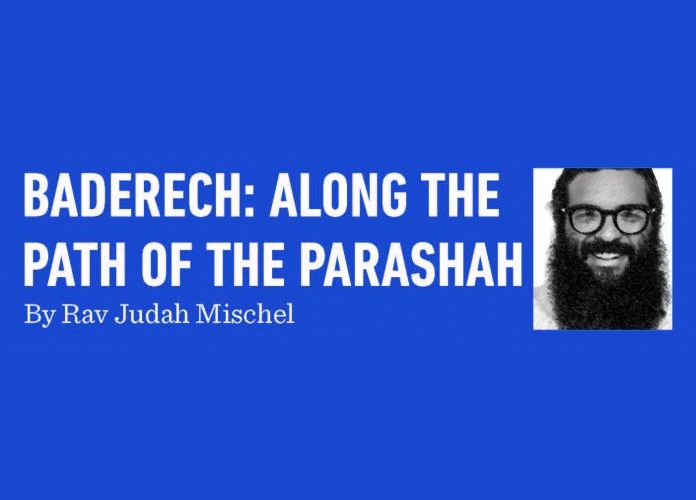Chazon: A Tremendous Light
The grandson of the Baal Shem Tov, Rebbe Baruch of Medzhibozh, zy’a, was known as a passionate and fiery eved Hashem as well as for his intense personality and uncompromising strong will. While visiting some of his chassidim in the city of Zhitomir, Reb Baruch met a Yid who was panhandling for tzedakah outside of the shtiebel. This Yid was unkempt and dressed in tattered clothing, but Reb Baruch was drawn to him and showed him great affection and honor. Reb Baruch’s oldest daughter had reached marriageable age, and the Rebbe was moved to propose a shidduch with the beggar’s son. The beggar happily agreed, and the two drank a l’chaim to celebrate the engagement.
Zhitomir was in an uproar. How could it be that the Rebbe Reb Baruch, the grandson of the holy Baal Shem Tov, would propose to marry off his daughter to the son of a beggar? Did Reb Baruch not realize who he was making the shidduch with? One of the townsfolk approached the Rebbe and shared the community’s open secret: This fellow was reduced to begging for scraps, and his family was ostracized, as a result of what had occurred years earlier. The beggar had been an infamous thief, was caught, tied to a wagon, and dragged across town, while crowds jeered and pelted him with garbage. Reb Baruch smiled and calmly replied, “My eyesight is obviously better than yours; there is a tremendous light emanating from this Yid; I know exactly what I am seeing.”
Before heading home to Medzhibozh, Reb Baruch paid a visit to the elderly widow of the “Ohr HaMeir,” the tzaddik Rav Zev Wolf of Zhitomir. When he entered, the almanah greeted him. “I heard about the wonderful shidduch you made; mazal tov!” She went on to explain that years earlier, her late husband Reb Zev Wolf heard a ruckus coming from the street and went to the window to see what was happening. When he saw the Yid being dragged and publicly shamed, he said “Oy, he’s an innocent man! He’s covering for another Yid, the actual thief, who would not have survived the humiliation!”
“I asked my husband what to do. This is what he told me: ‘There will come a time when a tzaddik will pass through Zhitomir and make a shidduch with the son of this Jew; then the truth will come to light…”
n n n
Shabbos Chazon, “the Shabbos of Vision,” receives its name from the opening words of this week’s haftarah, Chazon Yeshayahu…. The dreadful vision portrayed in these verses is of the first destruction of Yerushalayim as a result of the moral degeneration of Klal Yisrael at that time:
“An ox knows his owner and a donkey his master’s trough; only Yisrael does not know Me (Yeshayahu1:3)…. Your land is desolate; your cities burnt with fire (1:7)…. Alas, the faithful city [Yerushalayim] has become a harlot. Once full of justice, in which righteousness would lodge, now she is filled with murderers” (1:21).
This prophecy is bleak. Am Yisrael is mired in exile, the Holy City fallen from grace.
But this is the challenge and opportunity of Shabbos Chazon: to cultivate the deeper vision to see beneath surface appearances. Rebbe Akiva had “vision” when he laughed upon seeing foxes scampering across the destroyed Holy of Holies. When questioned, he said, as it were, “My eyes must be better than yours… I know exactly what I’m seeing! The same Divine Spirit that predicted this destruction has also predicted the rebuilding!” We often only see part of the story; indeed, our Sages tell us that on the Ninth of Av, while the BeishaMikdash is burning, the reality of Mashiach is being born.
The Chozeh of Lublin, zy’a, once said that he was able to see a future day when Jews will be sitting together around a festive yom tov table on the Leil Tishah B’Av, singing songs of praise to Hashem, and a festive prayer: “Va-titen lanu es yom chag haTishah b’Av ha-zeh…!” Until that great day when the tzaddik of tzaddikimwill pass through our towns heralding the redemption, let us not wait to look beneath the degradation, woes, and suffering of our times. Let us recognize the great light that lies within every one of us. There is a tremendous light right here, right now, that is just waiting to be revealed! n
Rav Judah Mischel is executive director of Camp HASC, the Hebrew Academy for Special Children. He is the founder of Tzama Nafshi and the author of the “Baderech” series. Rav Judah lives in Ramat Beit Shemesh with his wife Ora and their family














